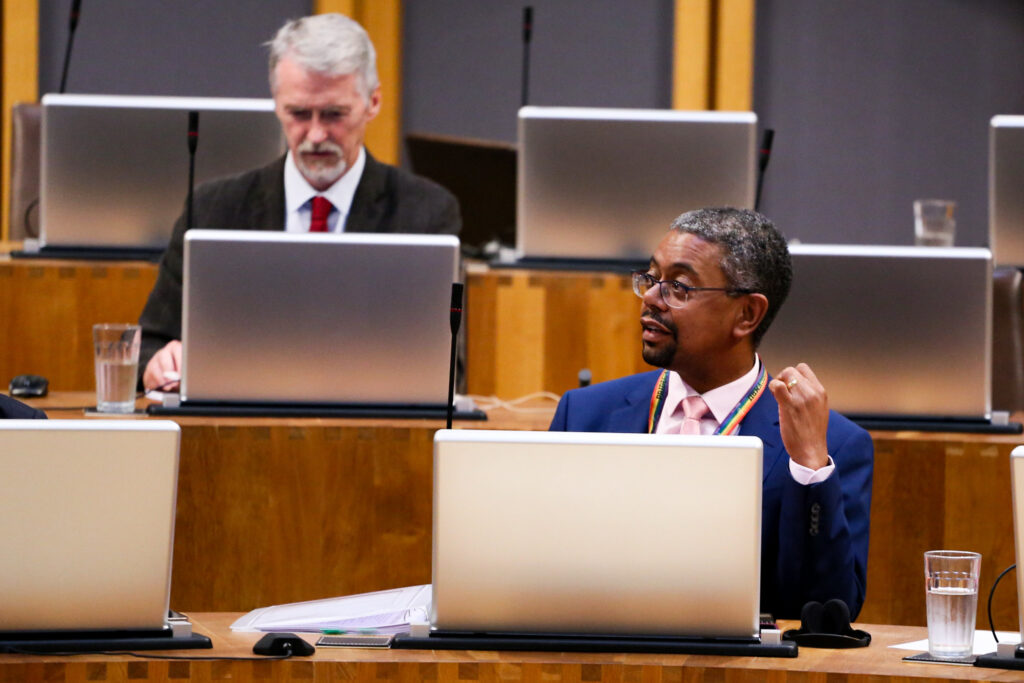Rosemary Butler explains why there is no need for legislation to police AM’s relationships with lobbyists
The fundamental reason for the creation of the National Assembly was to produce made-in Wales solutions to Welsh problems. Prior to 1999, all too often policy was implemented to solve problems that either didn’t exist in Wales, or had a very different context this side of Offa’s Dyke.
That’s why I asked the National Assembly’s Standards of Conduct Committee to look at the issues of governance surrounding the relationship of Assembly Members with outside organisations and individuals. We already have robust guidelines for AMs in terms of governing propriety in their relationships with lobbyists, or any external organisation that aims to influence them in relation to policy.
Furthermore, I didn’t want the Assembly to get caught up in the UK media storm surrounding lobbying access to MPs that erupted a year or so ago – and have our growing reputation as an open and transparent exemplar parliamentary body damaged through guilt by association.
We are not Westminster – our politics and the way we approach debate and policy-making are markedly different to the way it is done at the other end of the M4. The Westminster Government had indicated that it intended to legislate to establish a register of lobbyists, and to include the devolved institutions in that legislation – the suggestion being that Wales faced the same problems as Westminster.
Perception can be a damaging thing so I asked the Standards of Conduct Committee to take a look at the issue. And their report (here) validates the picture of transparency and openness that I paint above, by indicating that there is no need for legislation to police Assembly Members’ relationships with lobbyists.
In fact, the Committee asked the Commissioner for Standards in Wales to assess the Assembly’s current arrangements in relation to lobbying. He was firmly of the view that current arrangements were “essentially sufficiently robust and fit for purpose”. It was the unanimous view of all those consulted that lobbying in Wales is essentially transparent and adequately policed and regulated. And the Commissioner was not aware of any complaint against a Member relating to lobbying being made since the setting up of the National Assembly for Wales in 1999.
Why then have the review? Even though the Assembly has a good reputation for openness and transparency, we shouldn’t rest on our laurels. This review guards against complacency, and ensures arrangements remain sufficiently robust in light of any further devolution of powers to the Assembly. It also reinforces existing arrangements, including stronger rules on the operation of Cross Party Groups, and having more dialogue with the public affairs industry, in particular Public Affairs Cymru.
I believe the Committee has outlined a proportionate approach to suit the Welsh position, and one which is designed to increase the level of transparency about lobbying activity in Wales, without placing any unnecessary burden on the public purse. It has recommended a code of practice for Assembly Members on contact with those who may be involved in lobbying activity, as well as the introduction of guidance on the operation of Cross-Party Groups.
The guidance on contact with lobbyists is closely based on regulations in place in the Scottish Parliament for a number of years. The European organisation responsible for evaluating how Member States tackle corruption – called GRECO – has also recently called for such guidance to be adopted in all UK legislatures
The Cross-Party Group Rules are generally in-line with those in place in the larger legislatures of Westminster and Scotland. I would like to thank my colleagues on the Standards of Conduct Committee for their work in outlining a system that will add to the Assembly’s reputation as an exemplar organisation in terms of transparency and openness, and I hope that Assembly Members will support the guidance when they are asked to endorse it.






Good to see a push for stronger standard guidance on cross-party groups in the Assembly.
The present system is far too varied across the vast range of groups which currently exist.
All groups (including charities and not-for-profits) that hold meetings with AMs should be required to declare:
a) how much Welsh Government funding they have received, and
b) what proportion of their annual income this represents.
Maybe not yet, but as the Assembly grows, as it gets more AMs, and more powers, and different AMs, it could well be possible for their to be a need for one. I think the Assembly is missing a trick, it has the opportunity to bolt the door with the horse still inside.